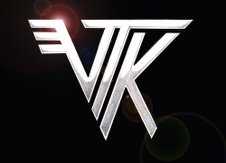
When the US State Department asks you to hold off on scheduled maintenance because the fate of a critically important nation is at stake ... you've arrived. Just a short couple months ago, I was confessing to not really grasping the obsession with Twitter. Well, suffice it to say that the role Twitter has played in the dissemination of information in an otherwise media-blacked-out Iran over the last couple weeks has fully dispelled any doubts I had about the power of the tweet.
Now that the only news coming out of Iran is coming from citizen journalists - protesters and bystanders alike - using their cellphones and twitter feeds, the importance of microblogging should be obvious. But even a week and a half ago, after the election but before the government moved to total media lockdown, the tweets were making themselves heard. Here's an article from stodgy old media stalwarts, The Wall Street Journal, talking about how twitterers were able to push fellow media dinosaurs CNN into better/more coverage of the protests in Iran. Not only did CNN step up their coverage after the online public shaming, they published a stroke job of an article about the emergence of twitter as a news source. This made me wonder what the media landscape will look like in the future if major media felt compelled to respond to trends and popular demands on twitter. Will our news be dictated by those savvy enough to manipulate and mobilize microblogging? The obvious concern for critical consumers of media is the legitimacy and reliability of this potentially massive stream of information. How do we know what's True and what's unverified, unreliable, or even false, manipulated, or engineered?
The picture at the top of the post is from twitterer Iridium24 via The Atlantic's Andrew Sullivan's blog, The Daily Dish. Sullivan is a credible journalist and has been compiling what he considers to be legitimate tweets. Is this the model of the future? Will the modern journalist essentially be a credible librarian, collator, and dispatcher of the data collected and broadcast by the people on the streets? The journalist becomes the editor and the reader becomes the journalist? If you consider journalism to be a skill at all, then there are ramifications from this transformation that extend beyond the idea that it's good to have more people reporting and disseminating news.
Rachel Maddow talked to another tweet gatherer,
Nico Pitney from the Huffington Post, on her show last week about his role in gathering information from the streets of Iran, while in his office in New York:
Since that interview, the media situation in Iran has devolved to the point where these twitter feeds, flickr and youtube images, and other transmissions are literally the only news coming out of Iran other than the obvious propaganda of the government. This type of proletariat micromedia may literally be the last hope of the people. But unfortunately, it might also spell their doom.
Check out this fascinating lecture that technology expert Clay Shirky gave last month, before the Iranian election. It's 17 minutes but I highly recommend you watch it because I can't quote it all:
In discussing the phones, cameras, blackberries and other tools being used by people on the streets to record and report elections in first Nigeria and then the United States, Shirky notes that "these tools don't get technologically interesting until they get technologically boring. It isn't when the shiny new tools show up that their uses start permeating society. It's when everybody is able to take them for granted... Now that media is increasingly social, innovation can happen anywhere that people can take for granted the idea that we're all in this together. And so we're starting to see a media landscape in which innovation is happening everywhere and is moving from one spot to another. That is a huge transformation."
Huge indeed. That got me thinking: could the technology era create a sort of reverse Big Brother situation? In a totalitarian regime, everyone assumes that the government is always watching and awareness of that dictates their behavior. Could the proliferation of cell phones capturing video and the transmission of information via text, twitter, etc., create an environment in which the police, the military, the media, the government, assume they're being watched and have their behavior dictated by the cameras being turned on them? Of course, this phenomenon must compete with governmental secrecy, spying, torture, executive privilege, etc. (and that's just in the US), so it might not be a net gain. But at least it might not be a net loss for the people. Power to the people, 140 characters at a time?
Later in the lecture, Shirky tells the story of how the BBC found out about the massive earthquake in China via twitter, before the US Geological Survey had anything up online about it. He points out that "the last time China had a quake of this magnitude, it took them three months to admit that it had happened. Now, they might have liked to have done that here, rather than seeing these pictures go up online, but they weren't given that choice, because their own citizens beat them to the punch. Even the government learned of the earthquake from their own citizens rather than the news agency." And remarkably, China allowed this reporting of the people to go on. But then the people pushed it further and successfully shamed the corrupt local government officials who had let the collapsed school buildings be built under code, which had resulted in the deaths of the children. This sort of bottom-up power dynamic was happening in China. As in Tiananmen Square China. So, eventually China shut the protests down and arrested the people. And after analysis of the transformation of the technology and media landscapes, they recently decided to shut twitter down (on the 20 year anniversary of Tiananmen Square massacre). They could police the internet with The Great Firewall of China, the best in the world, but they couldn't handle Twitter, so they had to shut it down entirely. "The transformation to amateur media [was] so enormous that they can't deal with it any other way", says Shirky.
But short of Chinese level censorship, how does a government control the message in this modern media environment? It's near impossible - which brings us to Iran's dilemma. My guess is that Iran will be forced to make a decision: whether to follow China's lead or not. And the decision they make will determine the outcome of this revolution. I'm guessing that they're going to choose lockdown and that the situation is going to get worse. But it's also the case that Iran doesn't have the same type of infrastructure, the massive firewall management that China does. This would prevent them from shutting down parts of the internet effectively or immediately. It may end up having a devastating effect on their economy, as well as eliminating any remaining pretense of democracy, both of which would further fuel revolutionary sentiment. Twitter could bring down the whole Iranian government.






1 comment:
Revolution 2.0
Post a Comment